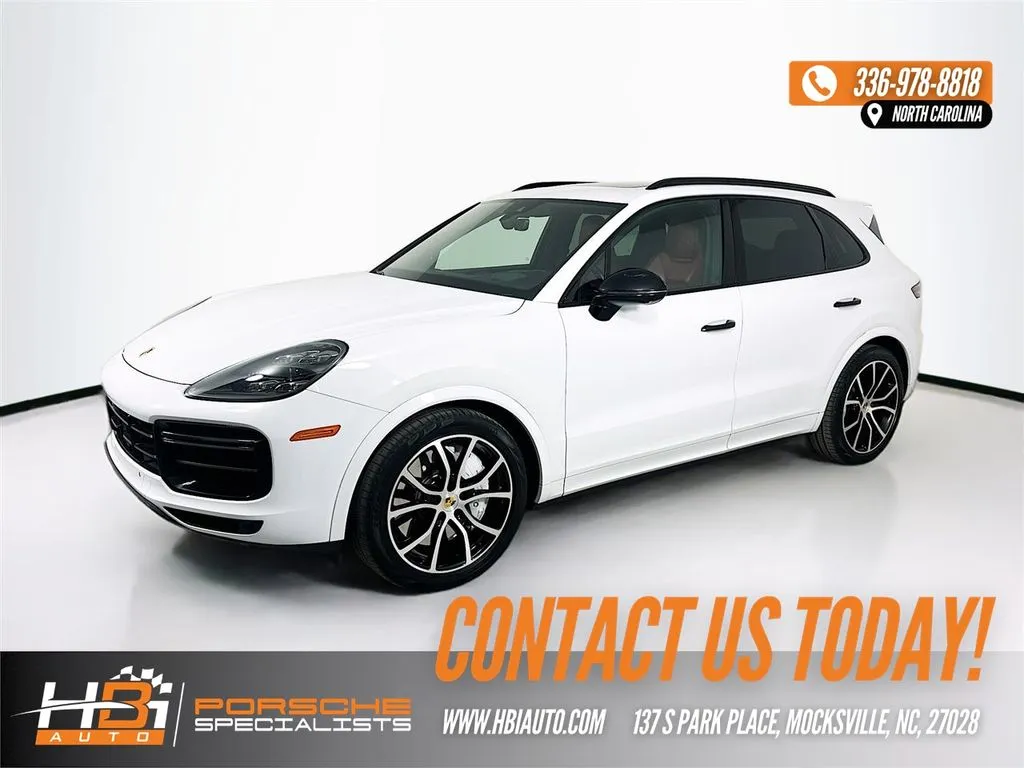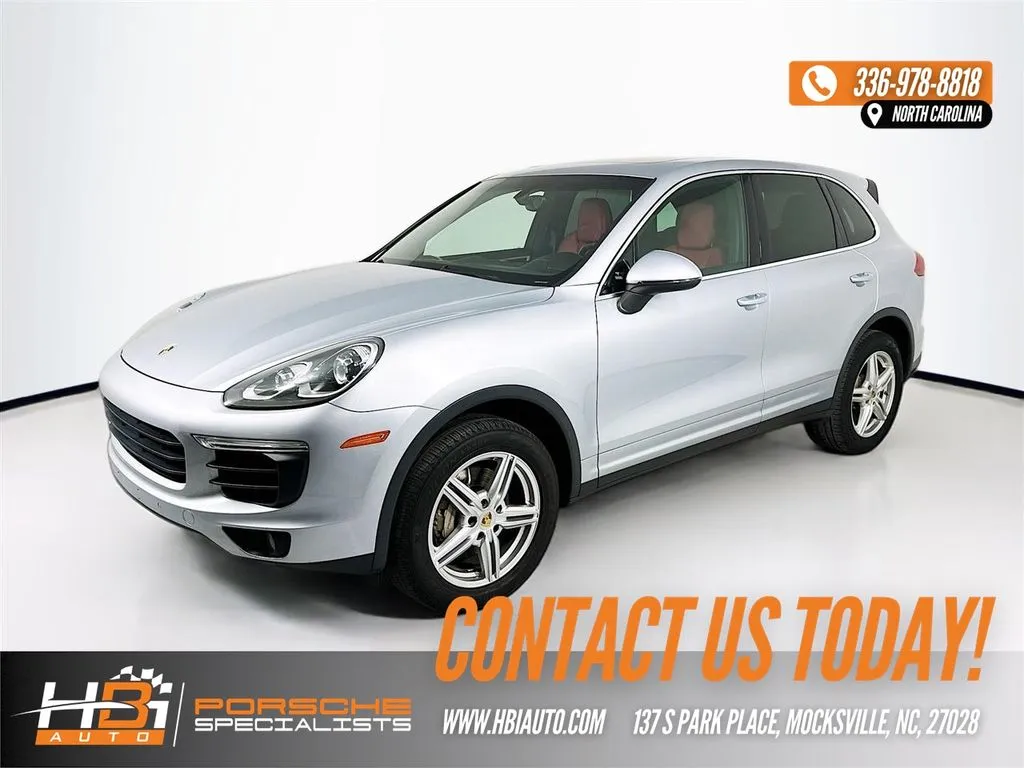Porsche Lease 101: Everything You Need to Know Before Signing
Table of Contents
- A. Explanation of Porsche Lease
- B. Advantages of Leasing a Porsche
- C. Brief History of Porsche Lease
- D. Importance of Understanding Porsche Lease
- Why Lease a Porsche?
- A. Lower Monthly Payments Compared to Buying
- B. No Down Payment Requirement
- C. Drive a New Car Every Few Years
- D. Minimal Maintenance Costs
- E. Access to the Latest Porsche Models and Technology
- F. Comparison with Buying a Porsche
- Types of Porsche Lease
- A. Closed-End Lease
- B. Open-End Lease
- C. Single-Payment Lease
- D. Sublease
- E. Comparison of Different Lease Types
- How to Lease a Porsche
- A. Researching Porsche Dealerships
- B. Negotiating Lease Terms and Conditions
- C. Filling out the Lease Agreement
- D. Understanding Leasing Jargon
- E. Porsche Financial Services
- Lease Restrictions and Fees
- A. Mileage Restrictions and Charges
- B. Excess Wear and Tear Charges
- C. Early Termination Fees
- D. Taxes and License Fees
- E. Comparison of Fees for Different Lease Types
- Porsche Lease Deals
- A. Current Lease Deals Available at Porsche Dealerships
- B. Special Offers and Incentives
- C. Lease-End Options
- D. Comparison of Lease Deals with Other Luxury Car Brands
- Personal Story: The Benefits of Leasing a Porsche
- Porsche Lease FAQs
- A. Can I Customize My Leased Porsche?
- B. What Happens at the End of My Lease Term?
- C. Can I Transfer My Lease to Someone Else?
- D. Can I Purchase My Leased Porsche at the End of My Lease Term?
- E. Can I Extend My Lease Term?
- F. Comparison of FAQs with Other Luxury Car Brands
- Conclusion
- A. Recap of the Benefits of Leasing a Porsche
- B. Final Thoughts on Porsche Lease
- C. Recommendation to Consider Porsche Lease as an Option for Car Enthusiasts
- D. Importance of Understanding All Aspects of Porsche Lease Before Making a Decision
If you're a car enthusiast looking to drive a luxury car without the high cost of ownership, leasing a Porsche may be an option worth considering. In this article, we'll dive into everything you need to know before signing a Porsche lease, including the advantages of leasing a Porsche, the different types of leases available, how to hire a Porsche, lease restrictions and fees, Porsche lease deals, and frequently asked questions.

A. Explanation of Porsche Lease
A Porsche lease is an agreement between a person and a Porsche dealership where the person pays a monthly fee to drive a Porsche for a set period, typically two to three years. At the end of the lease term, the person can return the car to the dealership or have the option to purchase it at a predetermined price.

B. Advantages of Leasing a Porsche
Leasing a Porsche has several advantages over buying one. Firstly, monthly lease payments are typically lower than loan payments when purchasing a Porsche, as leases only require payment for the car's depreciation over the lease term. Secondly, there is no down payment needed when leasing a Porsche, unlike buying one, where a significant down payment may be necessary. Thirdly, a person can drive a new car every few years when leasing a Porsche, whereas buying one means keeping the same vehicle longer. Fourthly, maintenance costs are minimal when leasing a Porsche, as the vehicle is under warranty for the duration of the lease. Lastly, hiring a Porsche provides access to the latest Porsche models and technology that may not be available for purchase.

C. Brief History of Porsche Lease
Porsche Financial Services introduced its leasing program in the US in 1984, becoming one of the first luxury car brands to offer leasing options. Since then, Porsche has become a famous brand for leasing, with several options, allowing people to drive a Porsche at a fraction of the cost of ownership.
D. Importance of Understanding Porsche Lease
Before signing a Porsche lease, it's essential to understand all aspects of the lease, including the different types of leases available, the costs involved, and the restrictions that come with the lease. This article will provide a comprehensive guide to help you make an informed decision when considering a Porsche lease.
Summary
- Leasing a Porsche offers lower monthly payments, no down payment requirement, and the ability to drive a new car every few years.
- There are different types of Porsche leases, including closed-end, open-end, single-payment, and sublease.
- When leasing a Porsche, it's important to understand restrictions and fees such as mileage restrictions, excess wear and tear charges, and early termination fees.
Why Lease a Porsche?
A. Lower Monthly Payments Compared to Buying
Leasing a Porsche offers lower monthly payments compared to buying one. This is because lease payments are only for the car's depreciation over the lease term rather than the entire vehicle cost. As a result, lease payments can be significantly lower than loan payments, making it an attractive option for those who want to drive a luxury car without breaking the bank.
B. No Down Payment Requirement
When leasing a Porsche, there is no down payment requirement, unlike buying one, where a significant down payment may be necessary. This means that a person can drive a Porsche without paying a large sum of money upfront, making it more accessible for those who may not have the funds to purchase a Porsche outright.
C. Drive a New Car Every Few Years
Leasing a Porsche allows a person to drive a new car every few years, providing access to the latest Porsche models and technology. This means that a person can enjoy the latest features and upgrades that may not be available for purchase, keeping them up to date with the latest advancements in the automotive industry.
D. Minimal Maintenance Costs
When leasing a Porsche, the car is under warranty for the duration of the lease, meaning that any necessary repairs or maintenance are covered. This can significantly reduce maintenance costs, making it a more affordable option for those who want to drive a luxury car.

E. Access to the Latest Porsche Models and Technology
Leasing a Porsche provides access to the latest Porsche models and technology that may not be available for purchase. Porsche is known for its high-end features and performance capabilities, making it an attractive option for car enthusiasts who want to experience the best the brand offers.

F. Comparison with Buying a Porsche
Buying a Porsche means owning the car outright and paying the entire vehicle cost. This can be a significant financial commitment, requiring a sizeable down payment and high monthly loan payments. On the other hand, leasing a Porsche offers lower monthly fees, no down payment requirement, and minimal maintenance costs. Additionally, hiring a Porsche allows a person to drive a new car every few years, providing access to the latest Porsche models and technology.
Types of Porsche Lease
A. Closed-End Lease
A closed-end lease, also known as a "walk-away" lease, is the most common type of Porsche lease. With a closed-end lease, the person leasing the car is only responsible for the car's depreciation over the lease term. At the end of the lease term, the person can return the vehicle to the dealership or purchase it at a predetermined price.
B. Open-End Lease
An open-end lease, or a "finance lease," is less standard than a closed-end lease. With an open-end lease, the person leasing the car is responsible for any difference between the predetermined residual value of the vehicle and the actual market value at the end of the lease term. If the car's market value is less than the predetermined residual value, the person leasing the vehicle will be responsible for paying the difference.
C. Single-Payment Lease
A single-payment lease is a lease that requires a single upfront payment for the entire lease term. This type of lease is typically only available for people who can afford to pay for the whole of the lease term upfront.
D. Sublease
A sublease is an agreement between the person leasing the car and a third party, allowing the third party to use the vehicle for a set period. The person renting the vehicle remains responsible for any payments and obligations under the original lease agreement.
E. Comparison of Different Lease Types
When considering a Porsche lease, it's essential to understand the different types of leases available and their respective pros and cons. A closed-end lease is the most common type and offers the most flexibility, while an open-end lease may have additional costs and risks. A single-payment lease may be a good option for those who can afford to pay for the entire lease term up front, while a sublease may be a good option for those who want to share the car with a third party.
| Type of Lease | Description | Pros | Cons |
|---|---|---|---|
| Closed-End Lease | The most common type of Porsche lease is where the person leasing the car is only responsible for the car's depreciation over the lease term. At the end of the lease term, the person can return the vehicle or purchase it at a predetermined price. | Lower monthly payments, flexibility to return the car at the end of the lease term | Limited customization options, mileage restrictions |
| Open-End Lease | Less common than a closed-end lease. The person leasing the car is responsible for any difference between the predetermined residual value and the actual market value at the end of the lease term. | There are no mileage restrictions, and there potential to purchase the car at a lower price if the market value is higher than the residual value | There is a higher risk if the market value is lower than the residual value, and there is a potential for additional charges |
| Single-Payment Lease | Requires a single upfront payment for the entire lease term. | No monthly payments, the potential for savings on interest charges | Requires a significant upfront cost, limited availability |
| Sublease | An agreement between the person leasing the car and a third party, allowing the third party to use the vehicle for a set period. The person renting the car remains responsible for any payments and obligations under the original lease agreement. | Potential to share the car and split the lease costs, flexibility for the person leasing the car | Additional administrative work and responsibility for the person leasing the car, potential conflicts with the third party |
| Comparison of Different Lease Types | It's essential to understand the pros and cons of each lease type to choose the one that best suits your needs and preferences. | Allows for informed decision-making, ensures the lease aligns with personal preferences and financial situation | Requires research and understanding of lease terms and conditions |
How to Lease a Porsche
A. Researching Porsche Dealerships
When leasing a Porsche, it's essential to research different Porsche dealerships to find the best deal and lease terms. Analyzing dealerships can help a person find a dealership that offers the best lease deals, incentives, and customer service.
B. Negotiating Lease Terms and Conditions
Before signing a Porsche lease, it's essential to negotiate lease terms and conditions with the dealership. This includes the lease term, monthly payments, mileage restrictions, and additional fees or charges.
C. Filling out the Lease Agreement
Once lease terms and conditions have been negotiated, the person leasing the car must complete the lease agreement. This includes providing personal information, such as name, address, and contact information, as well as agreeing to the terms and conditions of the lease.
D. Understanding Leasing Jargon
Leasing a Porsche comes with jargon that may be unfamiliar to those who have never hired a car. It's important to understand terms such as residual value, money factor, and acquisition fee to ensure that you know the costs and obligations associated with the lease.
E. Porsche Financial Services
Porsche Financial Services is the financing arm of Porsche and offers several lease options and financing solutions for those looking to lease a Porsche. Researching Porsche Financial Services and comparing their lease options with other financing options is important to find the best deal.
Lease Restrictions and Fees
A. Mileage Restrictions and Charges
Leasing a Porsche comes with mileage restrictions, which vary depending on the lease agreement. If a person exceeds the mileage limit, they may be subject to additional charges, which can be significant. It's essential to understand the mileage restrictions and costs associated with the lease to avoid any unexpected fees.
B. Excess Wear and Tear Charges
When leasing a Porsche, the person hiring the car is responsible for any excess wear and tear on the vehicle. This includes damage beyond normal wear and tear, such as dents, scratches, or broken parts. If the vehicle has excessive wear and tear, the person leasing the vehicle may be subject to additional charges.
C. Early Termination Fees
If a person decides to terminate the lease before the end of the lease term, they may be subject to early termination fees. These fees can be significant, including the remaining lease payments, depreciation charges, and other fees.
D. Taxes and License Fees
When leasing a Porsche, a person is responsible for paying taxes and license fees associated with the car. This can include sales tax, registration fees, and any other taxes or fees required by law.
E. Comparison of Fees for Different Lease Types
Different types of Porsche leases may have additional fees associated with them. It's essential to compare the fees for different lease types to find the best deal and avoid any unexpected fees.
Porsche Lease Deals
A. Current Lease Deals Available at Porsche Dealerships
Porsche dealerships may offer lease deals and incentives to attract customers. It's important to research current lease deals and incentives to find the best deal.
B. Special Offers and Incentives
Porsche Financial Services may offer special offers and incentives for those looking to lease a Porsche. These can include reduced lease payments, money-off incentives, and other promotions.
C. Lease-End Options
At the end of the lease term, a person leasing a Porsche has several options. They can return the car to the dealership, purchase it at a predetermined price, or lease a new Porsche.
D. Comparison of Lease Deals with Other Luxury Car Brands
When considering a Porsche lease, comparing lease deals and incentives with other luxury car brands is important. This can help people find the best deal and ensure they get the most value for their money.
Personal Story: The Benefits of Leasing a Porsche
Leasing a Porsche has been a game-changer for me financially and in terms of driving experience. As a car enthusiast, I always dreamed of driving a luxury car, but the high cost of ownership seemed out of reach. That's when I started exploring the option of leasing.
I decided to lease a Porsche Cayenne, and it was one of the best decisions I've ever made. The lower monthly payments compared to buying allowed me to drive a high-end vehicle without breaking the bank. Instead of a hefty down payment, I only had to pay a small amount upfront, making it more affordable.
One of the most significant advantages of leasing is the ability to drive a new car every few years. As technology advances and new models are introduced, I always have access to the latest Porsche models and cutting-edge technology. It's like having a brand-new car every few years without the hassle of selling or trading in my old one.
Maintenance costs have also been minimal during my lease term. The vehicle was covered under warranty, which meant that the dealership took care of any repairs or maintenance. This gave me peace of mind and saved me from unexpected expenses.
Leasing a Porsche has genuinely enhanced my driving experience. The luxury and performance of the car are unparalleled, and it's a joy to get behind the wheel every day. Plus, I can customize my leased Porsche, making it a truly personalized driving experience.
I can either return the car or purchase it at the end of my lease term. This flexibility lets me decide what suits my needs and financial situation best. Overall, leasing a Porsche has allowed me to enjoy the luxury and prestige of driving a high-end vehicle, all while staying within my budget.
Porsche Lease FAQs
A. Can I Customize My Leased Porsche?
Customizing a leased Porsche may be possible, depending on the lease agreement. It's important to discuss any customization options with the dealership before signing the lease agreement.
B. What Happens at the End of My Lease Term?
At the end of the lease term, a person leasing a Porsche can return the car to the dealership, purchase the vehicle at a predetermined price, or lease a new Porsche.
C. Can I Transfer My Lease to Someone Else?
Transferring a Porsche lease to someone else may be possible, depending on the lease agreement and the approval of the dealership. It's important to discuss any transfer options with the dealership before signing the lease agreement.
D. Can I Purchase My Leased Porsche at the End of My Lease Term?
Purchasing a leased Porsche at the end of the lease term is an option as long as it is included in the lease agreement. The purchase price is predetermined at the beginning of the lease term.
E. Can I Extend My Lease Term?
Extending a Porsche lease term may be possible, depending on the lease agreement and the approval of the dealership. Discussing any extension options with the dealership before signing the lease agreement is essential.
F. Comparison of FAQs with Other Luxury Car Brands
Different luxury car brands may have additional lease terms and conditions. It's essential to compare FAQs with other luxury car brands to ensure that a person is making an informed decision when leasing a car.
Conclusion
A. Recap of the Benefits of Leasing a Porsche
Leasing a Porsche offers several benefits over buying one, including lower monthly payments, no down payment requirement, minimal maintenance costs, and access to the latest Porsche models and technology.
B. Final Thoughts on Porsche Lease
Leasing a Porsche can be an affordable way to drive a luxury car without the high cost of ownership. However, it's essential to understand all aspects of the lease before signing to avoid any unexpected fees or charges.
C. Recommendation to Consider Porsche Lease as an Option for Car Enthusiasts
Leasing a Porsche may be an attractive option for car enthusiasts who want to experience the best the brand offers without breaking the bank.
D. Importance of Understanding All Aspects of Porsche Lease Before Making a Decision
Before signing a Porsche lease, it's essential to understand all aspects of the lease, including the different types of leases available, the costs involved, and the restrictions that come with the lease. This can help a person make an informed decision and avoid unexpected fees or charges.






